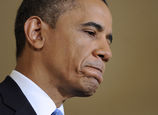
Structural factors are main cause
Shen said that the sharp increase in China's grain imports last year reflected normal business operations and market demand, and had three reasons. First, foreign grain prices further dropped last year, making domestic companies more willing to import grain. Second, domestic demand for animal feed, particularly corn whose supplies were relatively tight, increased. Third, relatively small grain imports in 2011 provided a low base.
Market analysts believe that relatively low prices of foreign grain contributed largely to the surge in China's grain imports last year.
Li Guoxiang, a researcher at the Rural Development Institute under the Chinese Academy of Social Sciences, mainly attributed stable domestic prices to the substantial increase in the country's grain imports last year. The regulation of imports and exports has contributed actively to China's stabilization of the price level and realization of its macroeconomic goals. However, it does not mean China is highly dependent on foreign grain.
Cheng noted that China adjusted the structure of its grain industry by increasing grain imports last year. The Chinese market is a managed open market, and structural adjustments require importation of competitive products. Furthermore, the amount of its grain imports was within a normal range, compared with that of previous years.
Bi Meijia, chief economist at the Ministry of Agriculture, said that the increase in grain imports was mainly to meet the diverse domestic consumer demand. The proportion of animal feed and grain for industrial use in total imports is on a steady rise. It is important to moderately import high-quality rice and wheat with strong or weak gluten.

Read the Chinese version: 中国粮食进口“威胁论”太夸张(热点聚焦)
Source: People's Daily Overseas Edition; Author: Wan Qian
















 Beijing style: Duck, opera, fog and cough...
Beijing style: Duck, opera, fog and cough...


![]()
